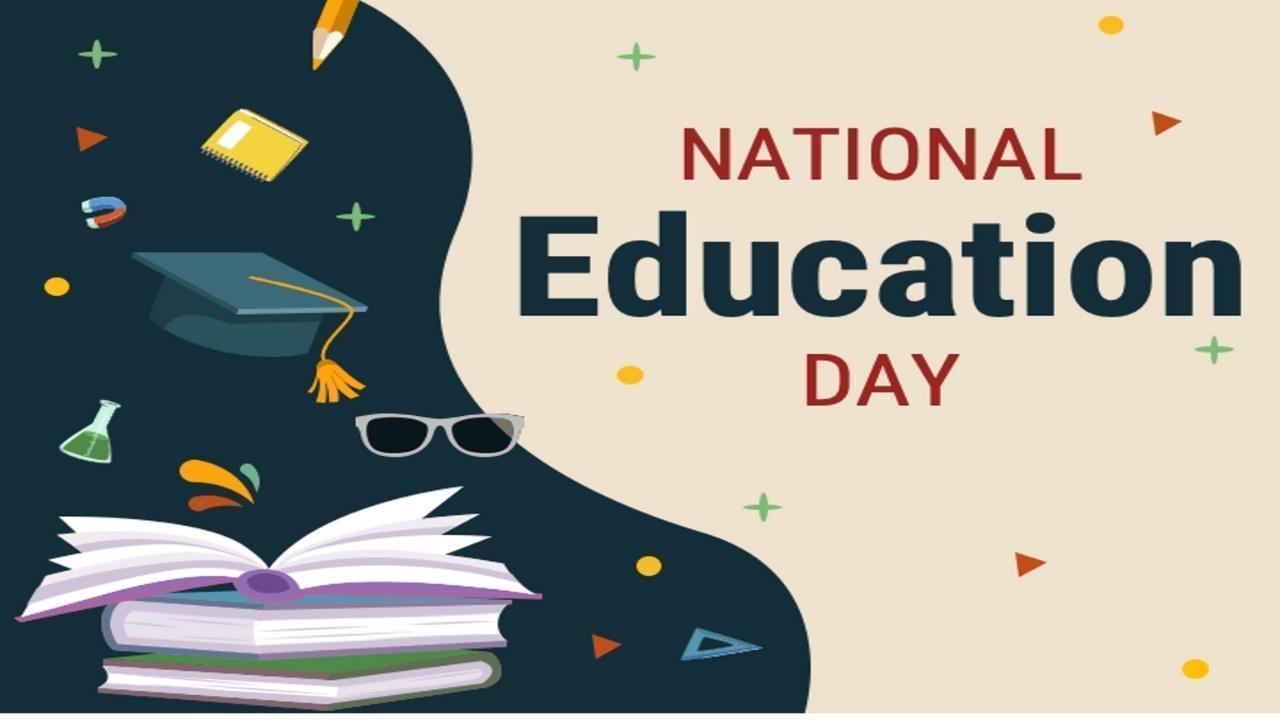
Post by : Anees Nasser
Every year, on November 11, India marks National Education Day, a significant occasion dedicated to reaffirming the country’s dedication to knowledge and empowerment through education. This day honors the birth anniversary of Maulana Abul Kalam Azad, the first Minister of Education post-independence, whose visionary approach transformed education into a vital force for societal advancement.
Azad's forward-thinking ideas positioned education as a transformative mechanism that transcends traditional classrooms. He envisioned a society where education fostered critical thinking, innovation, and responsible leadership. His relentless push for universal primary education, girls' schooling, scientific literacy, and modern universities laid the groundwork for the education system we see today in India.
On National Education Day, we not only celebrate past achievements but also confront the challenges that persist, from technology gaps to skill deficits. As India aspires to become a global knowledge leader, the importance of this observance continues to grow.
Maulana Azad's influence in various sectors was impactful and multifaceted, particularly in the realm of education.
He championed the following beliefs:
Education should be recognized as a fundamental right.
A society's progress relies on scientific thought.
Literacy must be paired with values and civic duty.
Access to education for women and marginalized groups is crucial.
His leadership was critical in establishing various educational frameworks in India:
Broadened the vision for universal education.
Founded the University Grants Commission (UGC).
Enhanced the quality of IITs and central universities.
Promoted scientific and technical education.
Supported cultural and educational institutions, including libraries.
Azad believed that true nation-building begins in the classroom, with the intellect of youth being a nation’s greatest asset.
With its rich diversity, India faces challenges that education strives to bridge, providing equal opportunities and enabling upward mobility.
Today’s global landscape requires innovative thinkers and problem solvers. National Education Day serves to highlight the importance of skills tailored to contemporary advancements, ranging from technology to entrepreneurship.
Education goes beyond mere literacy; it must cultivate empathy, civic duty, discipline, and appreciation for diversity. This day serves as a reminder that education must uplift responsible citizenship.
Emerging from a backdrop of limited educational infrastructure and widespread illiteracy, India has seen substantial growth in schools and higher education, creating a competitive landscape.
From traditional classrooms to state-of-the-art digital learning environments, Indian education has undergone a revolutionary transformation. Institutions are integrating hands-on experiences and entrepreneurial initiatives into their curricula.
Innovations in ed-tech and remote learning systems are democratizing education, especially for those in isolated areas.
Modern education emphasizes both academic success and essential life skills, including critical thinking and emotional intelligence.
Key initiatives aim to ensure every learner is included:
Programs supporting girls’ education.
Scholarships for economically disadvantaged students.
Learning support for students with special needs.
Incorporating regional languages in educational materials.
As industries evolve, education is shifting focus to equip students with relevant skills, from programming to vocational training.
With initiatives that emphasize research and innovation, India aims to inspire students to explore beyond textbooks.
Teachers play an integral role in shaping the values and aspirations of their students, going beyond curriculum.
In a digital-age classroom, educators are adopting innovative teaching practices while nurturing empathy.
Ongoing training empowers teachers to keep pace with modern teaching methods and student needs.
Contemporary classrooms are fostering interactive learning through debates and collaborative projects.
Technology is enabling personalized learning paths for students, catering to their unique strengths and needs.
Educational institutions are fostering innovation through startup incubators and practical project opportunities.
Despite advancements in urban areas, rural schools often lack proper digital infrastructure. National Education Day highlights the importance of equitable access to educational technology.
Providing digital content in local languages is essential for accessibility and cultural conservation.
Differences in resources and educational quality remain a significant challenge in urban versus rural areas.
Students are under increasing pressure, making it critical to prioritize mental health alongside academic performance.
As industry needs evolve, education systems must adapt swiftly to provide the necessary skills.
Schools commemorate the day through:
Educational seminars and discussions.
Competitions, including essays and quizzes.
Events honoring Maulana Azad's legacy.
Engaging dialogues between teachers and students.
Book fairs and literary sessions.
Workshops to showcase skills and innovations.
These activities spark important conversations about educational goals and the future of learning.
The journey ahead necessitates integrating technology and modern curricula to ensure equal access to quality education for all students.
India aspires to lead the global education sector by leveraging its youth, technology, and research capabilities.
As digital landscapes evolve, grounding education in ethics, empathy, and inclusivity remains paramount, in line with Azad’s vision.
National Education Day embodies not just a commemorative event but a vital recognition of India’s educational evolution, a tribute to Maulana Abul Kalam Azad’s transformative vision, and a commitment to enhance learning for future generations.
Education enriches lives, ignites aspirations, and empowers communities, paving the way for a just, progressive society. As India forges ahead in innovation and leadership, the dedication to inclusive, skill-focused education remains more crucial than ever.
By honoring our history, fortifying our present, and crafting an enlightened future driven by knowledge, we capture the essence of National Education Day.
This article serves educational purposes and provides general insights on National Education Day and the enhancement of India’s educational framework.










Anders Antonsen Withdraws from India Open Due to Pollution Issues
World No. 3 Anders Antonsen withdraws from the India Open, citing severe air pollution in Delhi, inc

Antoine Semenyo Shines Brightly with Two Goals in Manchester City Debut
Antoine Semenyo impresses by scoring in his first two matches for Manchester City, aiding their vict

IOC and BPCL Uncover Significant Oil Finds in Abu Dhabi, Enhancing India's Energy Strategy
IOC and BPCL's UBPL has made new oil discoveries in Abu Dhabi, reinforcing India's energy security a

Debate in Singapore Parliament on Opposition Leader Pritam Singh's Potential Dismissal
Pritam Singh faces debate in Parliament regarding his removal after being convicted of false testimo

China Imposes Restrictions on Nvidia H200 AI Chip Imports Amid US Tensions
China restricts Nvidia's H200 chips to R&D only, escalating tech purchase controls amid US-China ten

Kim Yo Jong Dismisses South Korea’s Peace Aspirations, Seeks Immediate Apology
Kim Yo Jong rebuffs South Korea’s peace overtures, labeling them impractical, while demanding an apo